26
« on: December 01, 2007, 11:50:16 AM »
Fellas: long time I ent post but I read this article in the London Guardian and I was quite impressed about what goes on behind the scenes at a Big club. The quality of training and the attention to detail is remarkable and it is necessary for TnT if we are to progress as a footballing nation. Enjoy...its a long but insightful read.
Integration, microcycle and banter create the harmony of champions
The players and coaches of Manchester United reveal the training-ground details of their match preparation
Saturday December 1, 2007
The Guardian
Players work out in the gym with strength and conditioning coach Mike Clegg. Photograph: John Peters/Manchester United/Getty Images
By 7.30am on most weekday mornings the hood of Sir Alex Ferguson's car is already stone cold. It's nothing to do with the invariably inclement Manchester weather, of course, but all to do with the fact that the manager has been perched at his desk for half an hour already. And he's not alone.
After more than two decades in the job Ferguson leaves the planning and execution of United's training sessions to his assistant manager, Carlos Queiroz, and first-team coach, Mike Phelan. They, together with the goalkeeping coach Tony Coton, fitness coach Tony Strudwick and skills coach Rene Meulensteen, put the players through their paces on a daily basis while Ferguson monitors developments.
Article continues
--------------------------------------------------------------------------------
--------------------------------------------------------------------------------
"The training session is based on what we call the integration concept," says Queiroz. "All things are related to the preparation of the players. The technical, tactical and fitness aspects, everything together is in an integrated system. The most important thing is that before training we understand the needs of each player in each position and we know the needs of the team, so we can make the right decisions. We create and combine the right harmony between the preparation of the individual and that of the team."
The players arrive at around 9.30am, half an hour before training starts, but the coaching staff meet well in advance of every session to organise each day's bespoke training programme. The club's medical staff are also consulted to highlight players' knocks and injuries.
"Everything the player does on the pitch has different impacts in the performance of the team," says Queiroz. "If you run and shoot, then there's the technical impact, the fitness impact, an emotional and mental impact. Human beings aren't split into different areas; we work through a complex system. My job is just to create the right harmony and make the right decisions in terms of preparation - which drills to do when, how many hours of training to do on each day of the week, etc."
Strudwick arrived at Old Trafford in August 2007 from Blackburn Rovers and he keeps the players' fitness ticking over.
"The training programme for the week, otherwise known as the microcycle, is determined by the amount of games we have in a week," says Strudwick. "The day after a game, often Sunday, will usually be a rest day for everyone or a recovery day for those who have played. The first three days of the following week - Monday, Tuesday and Wednesday - involve a lot of hard work on the players' part. In terms of fitness training, the squad will spend some time in the gym working on building up their strength on the Monday. The following day they will focus on aerobic work to help increase their endurance and on the third day they will spend time on speed work.
"We then start to reduce the physical pressure and intensity on the players in order to help them start preparing themselves for the game on the Saturday. We will also look at some injury prevention methods. The day before a match the players will take part in a standard training session, which lasts no longer than an hour. We try to make everything short and sharp and to help improve the neuromuscular activity so the players are ready."
The mastermind behind the technical aspect of United's training sessions is Queiroz. The Portuguese is well aware of the importance of practice.
"Everybody knows the limits to where they can go, and knowing that creates more freedom and more initiative for the others because, whenever anybody does something, he knows there's a team behind him. That's why things seem more simple and easy when in fact they are doing difficult things. In football, high quality movement seems to be simple but it is exactly the complexity of those movements that is the most difficult thing in the game.
"There is no perfection in football. There are always points, not always from the individual point of view, sometimes from the collective one, that have room to improve. We can do that with smart work and if everybody's ready to accept their mistakes, the things that they're not doing right and the areas we should improve."
Having eased the players into the session with "boxes", their light-hearted drill of choice, Queiroz and Phelan then prefer to focus on more serious matters.
"After boxes we do a little bit of function work, focusing on possession and team shape for the build-up to the next game," says Darren Fletcher. "Training does vary - there are different shooting and tactical exercises we do and on certain days of the week there will be specific training drills geared towards positions. The midfielders will work on threading passes through the defence. It'll be four against four. The attacking quartet will aim to get the ball through the gaps, while the other team will work on staying together as a unit."
The goalkeepers, meanwhile, are whisked away by Coton to perform their own warm-up. Plenty of handling practice plus two-touch footwork prepares the custodians for joining up with their team-mates for the end of the session.
"We have certain things that seem to be laid down in stone," says Phelan. "In the first part of training we like to let the players enjoy themselves, just getting the balls out, knocking them about and playing little possession games. Then we move on to the main hub of the session, whatever we want to get in them for the next game or something that didn't happen in the last game. We build up the session that way."
The coaching staff factor in preparatory drills to combat upcoming opponents - although typically only a small amount.
"It depends on the game or the situation we find ourselves in," says Phelan. "We'll probably do one session on preparation for the opponents because games come so thick and fast it's difficult to do team training on the next game."
The final drill in training is usually a match of between seven and 10 a side, depending on how bare or crowded the treatment room is looking. "Some of us will swap positions during five-a-side games - the defenders might play up front and vice versa," says Fletcher. "Rio fancies himself in the free role behind the striker, while goalkeeper Tom Heaton surprised us on one occasion when he played outfield as he went and scored a hat-trick."
"Sometimes I play up front when we're having a joke around during a mini-match," chips in Nemanja Vidic. "I actually started out as a right-winger, then I went to right-back before I finally became a central defender. I remember playing on the left wing during one training session - Cristiano took my place in central defence. I felt good on the left wing. I didn't score but I made one great run and put in a great cross but no one was there! I wasn't quite as good as Ronaldo but I wasn't bad either."
With fitness such a key element, each player has a bespoke training programme drawn up by Strudwick. Gone are the days of extra laps around The Cliff, running until legs or lungs gave out. Ole Gunnar Solskjaer has sampled the evolution of training regimes first-hand since 1996.
"I think I just caught the latter end of old-school English football when I arrived," he says. "Foreign coaches, new training methods, loads of foreign players I think changed the demands of being a top player in the Premier League. You couldn't live as a top footballer now and be going out to the pub and doing what you do. I've noticed a massive difference. Everything now is down to detail. Before, in training, you ran your socks off but now everything is more scientific. You don't have to run that hard to get fitter.
"It's energy-saving and on a match day you do feel fitter. But you have to be because the modern-day footballer is so fit, athletic, technical, quick . . . I think that's the way it goes with life in general - everyone's just trying to be more effective and trying to find better ways to do things. I've benefited from the training methods here, I don't think I could cope with all the long slogs now at my age."
The players are prone to moments of mischief. "You have to have your wits about you when Scholesy and Wazza [Wayne Rooney] are around," says Fletcher. "All the balls that are dotted around the edge of the pitch will suddenly start flying past you. You can never relax during that period."
Rooney remains committed to the pursuit of hyper-fitness, however, staying true to the old "no pain, no gain" maxim.
"You've got to do the work to get the best out of yourself in the games," he says. "You've got to be fit and I think now with the games getting quicker you've got to be able to run for 90 minutes. Whether it's high intensity or endurance you've got to do it and the only way you can do that for 90 minutes is by doing it in training through the week."
Whereas a player might have possession for a few minutes during a match, they have the most intense contact with the ball during training sessions. This is the time when those lucky enough to catch a glimpse of Carrington will be privy to the players' repertoire of tricks.
"The older players in the latter stages of their careers have the skills, and the good thing is that you don't have to tell them when and where to use them," says Meulensteen. "They have the experience to know that, it's just whether they're comfortable with certain moves. With the young kids we give them all the optional moves and let them practise until they get to a point where they are naturally more comfortable with one or two. With the first-team players you can look at them, let them do them and then quickly rule most of them out, get them to concentrate on specific ones they are comfortable with.
"You can be very specific then. That's the core and what it will do is add something to the game where players look to have so much time on the ball, simply because they've found the right balance between popping the ball about nice and quickly and suddenly using a disguised piece of skill. Disguise is nothing else than making your opponent think you're going one way then, as soon as you've committed him, going the other.
"When you have that, that's when you get teams who look like they can't be caught. It's not just skill, though; personality and attitude carries the skill. That's part of the development too and that's a bit harder with the older players. They're more calculated, that's why sometimes they get caught in two minds and you can see it when they're playing. It's not a problem, you just encourage them not to get caught up in their mind. That's because they missed the chance to develop these things earlier on in their careers."
The affinity between players and coaches is matched by the rapport among all the coaching staff. "Everybody's got to have massive amounts of character to play here at United," says Coton. "That's where some players have failed, young and old, because they've not had that character. If you take the mickey, you've got to be able to take it back, and within that area the first-team staff give it each other.
"The gaffer's the world's worst for that kind of thing. What the public sees is not what happens. The only problem with the manager is that he can't keep a straight face, he laughs too early and I tell him that. He gives it away. We have some great fun. We work hard through the week and a Friday night before a Saturday away game is usually the only time we're all sat down together. We have a meal with the manager. He'll be chatting and telling us the same story, except this time he's added something to it from two weeks ago, so you just act surprised and he doesn't realise." Copyright © Manchester United Football Club Limited 2007. Edited extract from Behind The Scenes At Manchester United by Gemma Thompson and Steve Bartram, published by Orion Books at £18.99
Language barrier: How Queiroz gets his message across
Given the eclectic composition of United's playing squad - with origins ranging from Serbia to Seoul - it is of little surprise that language disparities can provide a sizeable hurdle. Fortunately for all, Carlos Queiroz is well versed in several tongues while several players speak more than one language. Having had jobs in South Africa, the United Arab Emirates, America, Japan and Spain, Queiroz speaks five languages and has a wealth of cross-cultural expertise.
"Basically we try to keep all conversations in English," he says. "But sometimes there are sensitive matters that require the mother tongue to be used. When English is not your mother language, no matter how much you try to learn the language, sometimes when you try to express feelings it's better to use your mother language because you can be more accurate.
"For instance, if a player is injured, fatigued or emotionally down, then it's better to check his feelings and thoughts in his mother language. That's why in those moments it's good I can communicate in, say, Spanish with Carlos Tevez, French with the French boys or Portuguese with Cristiano, Nani and Anderson. But for the routine daily conversation we always try to keep English as our official language at the club. Speaking the players' mother languages helps me a lot because I can have the close approach with them.
"The training at United demands an understanding of the roots and backgrounds of the players. You have diverse technical cultures such as Latin concepts, a continental concept of preparation and tactics. The way they approach the game is different from the English style and the roots of the English players; then you have South American players and those from African backgrounds.
"The most difficult job I found was to create the right balance because, if you come here and use the traditional concept of training in England, then you lose half the team. I couldn't use the methods and concepts I usually use only with Latin players because I could lose the concentration and motivation of the English players. At the beginning it was very important, through my experience and knowledge, to know and understand where they're coming from and create training sessions where I can keep all of them at a high level of motivation and concentration, exciting the players through the backgrounds and roots that each one brought to the training session.
"I must tell you that it wasn't easy and isn't an easy task for a coach to have so many different languages and roots and keep 90 minutes of attraction to the training sessions. That's especially true when you have to be persistent and repetitive with your ideas. I thought, and I still think, that if I didn't have the experience of working with South Americans, Asian, African and European players, then it would have been problematic to prepare the players in the right way."
Ticking the right boxes: Ferdinand's favourite
The first 15 minutes of training are spent on spinning bikes. The players get the blood pumping through their legs inside the wooden-sprung training hall before filtering out on to the first-team training pitch. Once outside, the first drill is usually one of the players' favourites: "boxes".
The squad is split into a junior and senior group and then two members of each group are enclosed by the rest, rather predictably in a box shape. The duo's aim is to win the ball, while the remainder must keep it from them with one-touch passing.
"I love going out and doing boxes - it's the best part about training," says Rio Ferdinand. "I think 90% of the lads would agree. If Carlos changes the training session around and tells us we're not doing boxes, I go bananas. I need to do a box to start the day off on a good vibe.
"Scholesy is probably the best at boxes. His awareness and touch is always spot-on. I was shocking in my first season at the club. I felt more pressure in that box than I did walking out at Old Trafford. After the first year I got used to it and I'd say I'm all right at it now."
"Scholesy and Giggsy are probably the best at boxes," adds Darren Fletcher. "They've been at the club for such a long time, so they've got the experience of doing it every day for years - they know the ins and outs of it. When you go into their box, which is the older box, it really is a step up and the play is a lot quicker. It's a good exercise, there is a lot of mickey-taking mainly because all the lads will try and nutmeg each other. We get some great little passing routines going and we've got up to around 30 passes in the past."

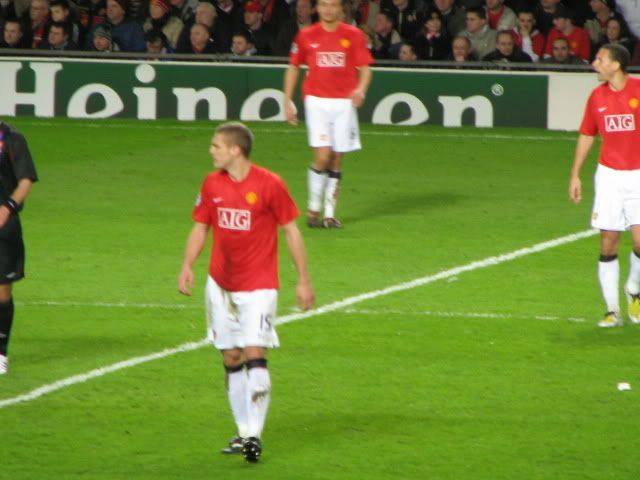 The New Bruce and Pallister
The New Bruce and Pallister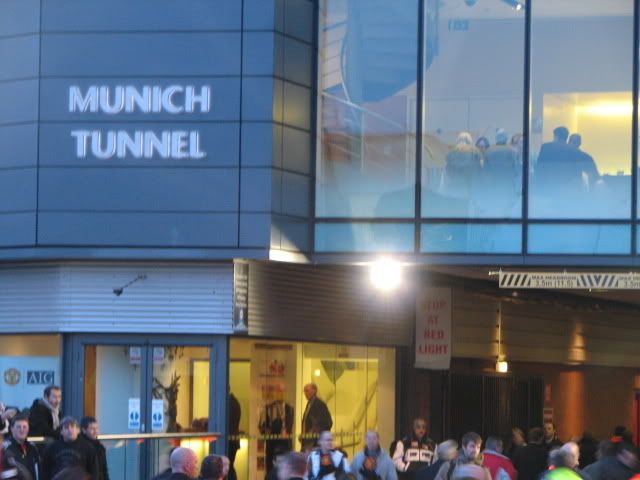 The Munich Tunnel
The Munich Tunnel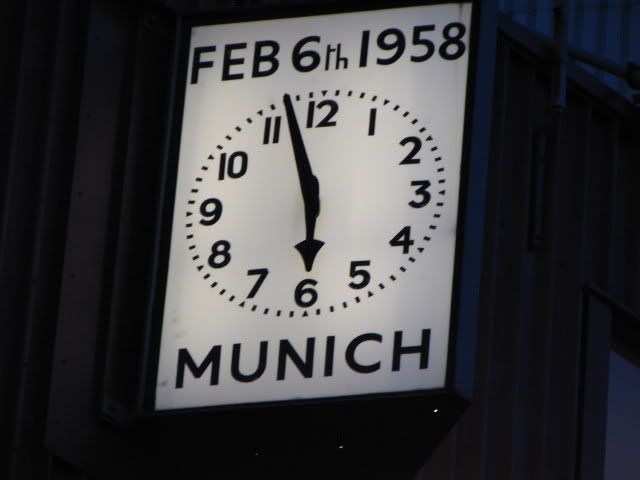 The day the clock froze and the city wept
The day the clock froze and the city wept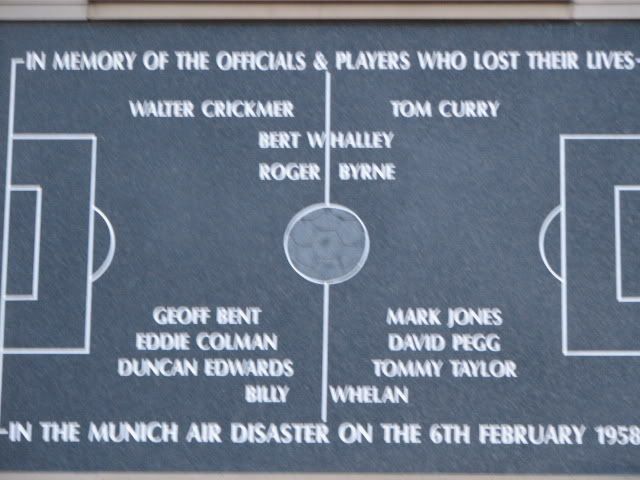 The Busby babes
The Busby babes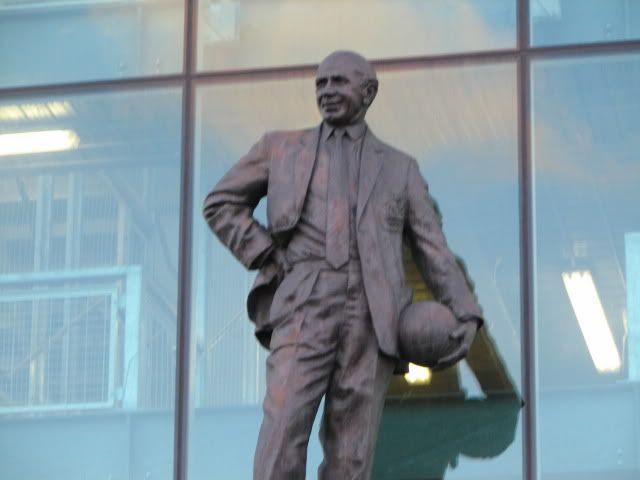 The man whom the Liverpudullians hate
The man whom the Liverpudullians hate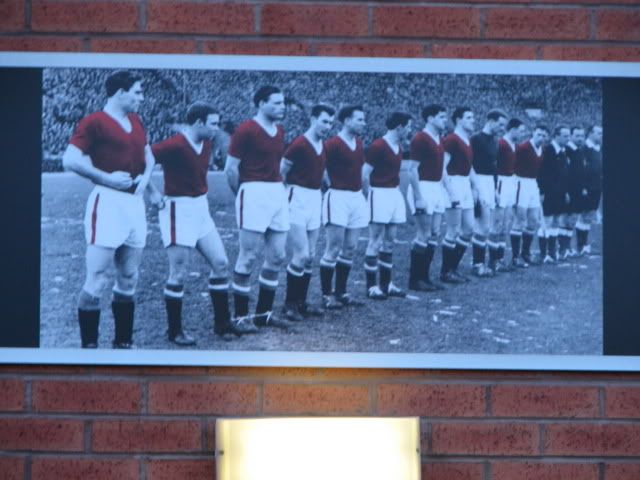 Busby Babes
Busby Babes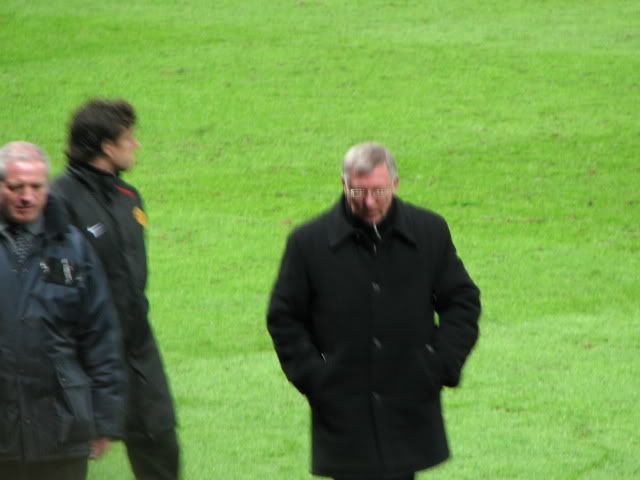 Sir Alex The Gaffer
Sir Alex The Gaffer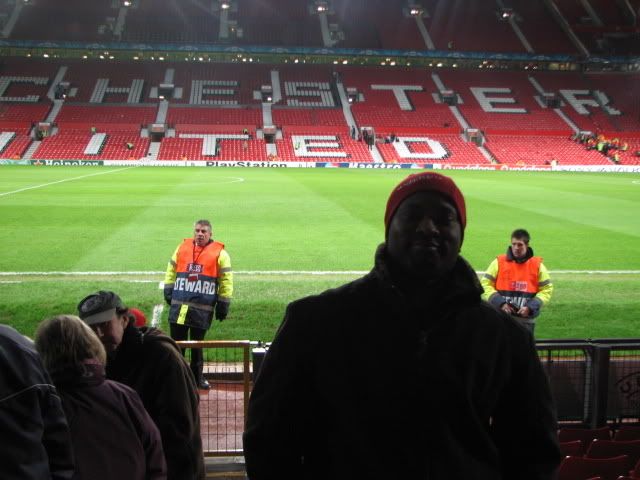 See how close my seats are
See how close my seats are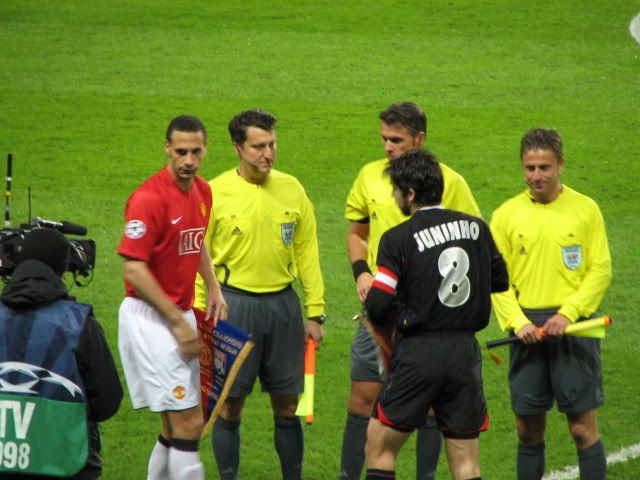 The New England Captain
The New England Captain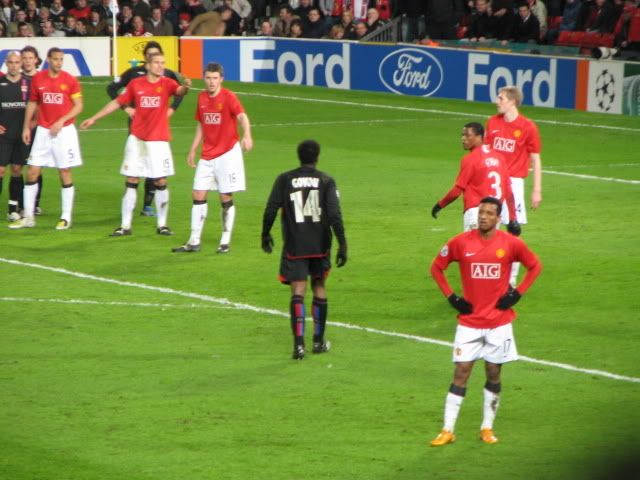 My Nani is better than yours
My Nani is better than yours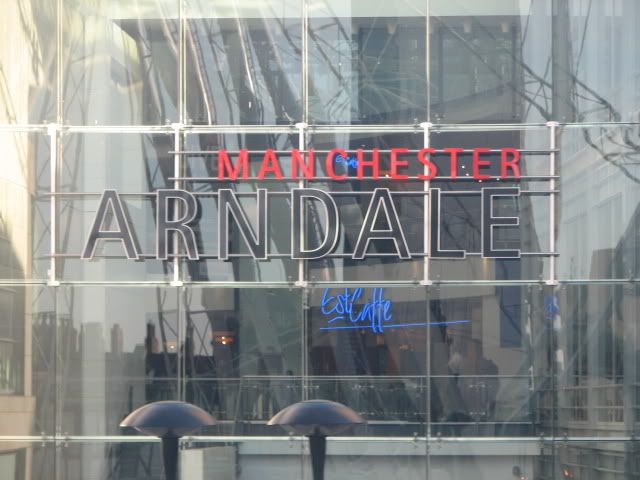 Manchester Mall
Manchester Mall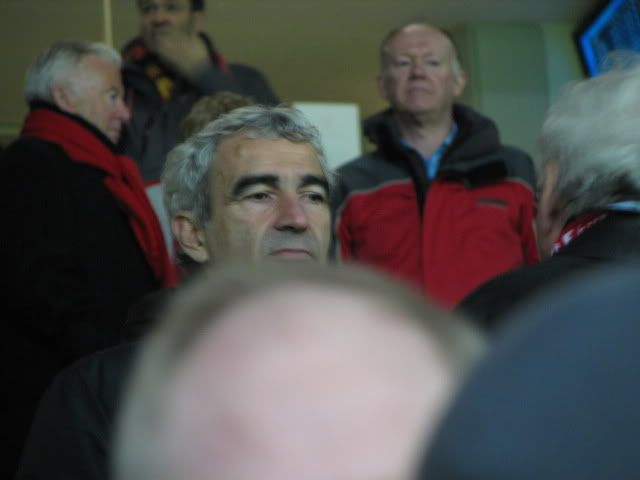 The French Coach Domenech
The French Coach Domenech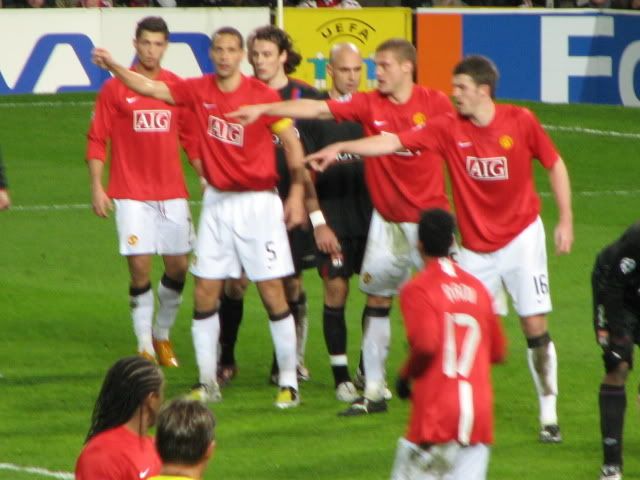 Aye watch out for Juninho
Aye watch out for Juninho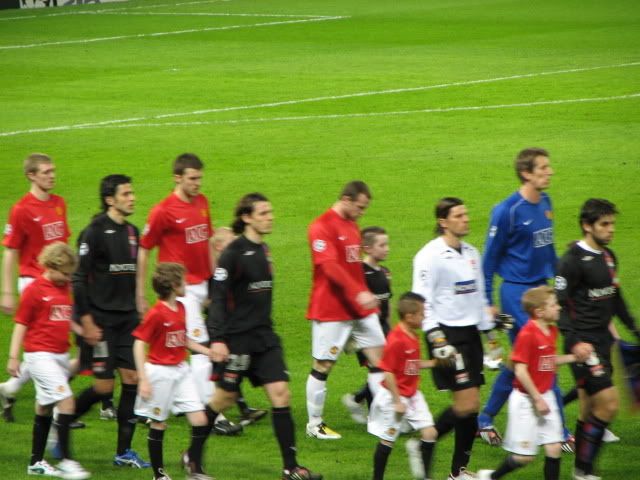 Here comes my team
Here comes my team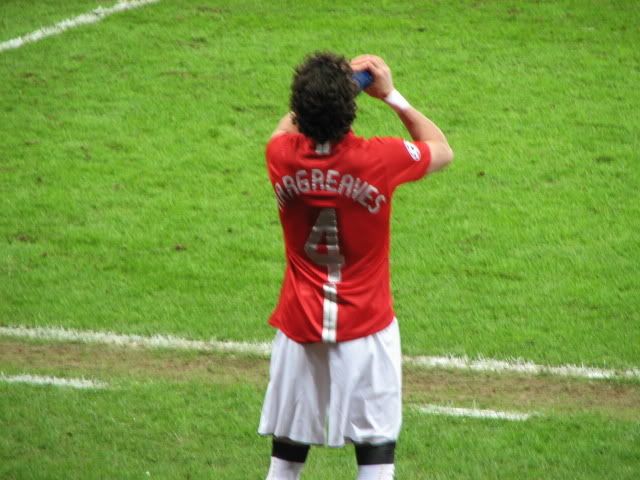 Hargy for TnT
Hargy for TnT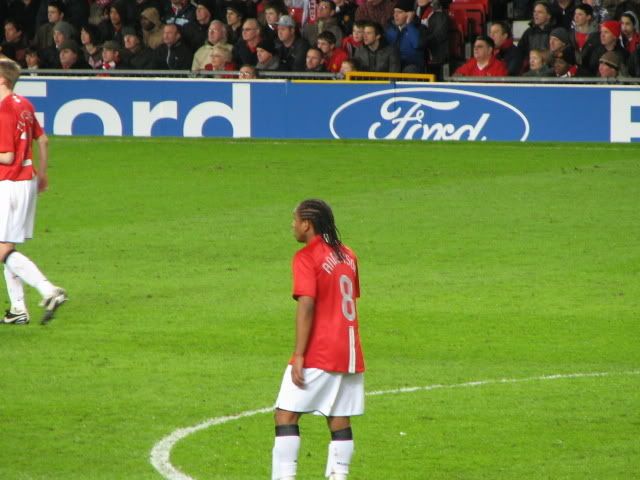 Midfield general
Midfield general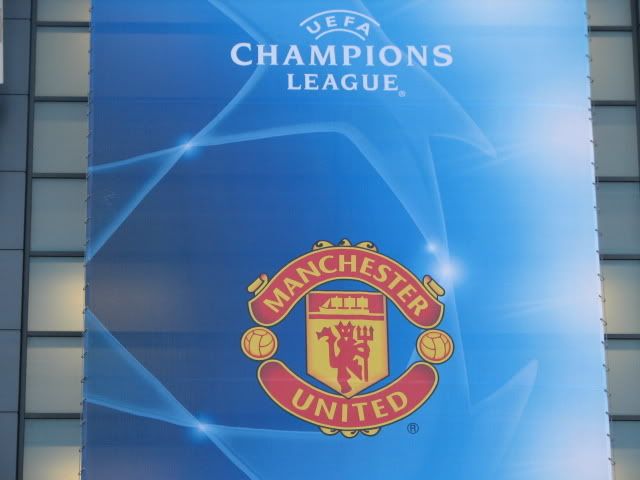
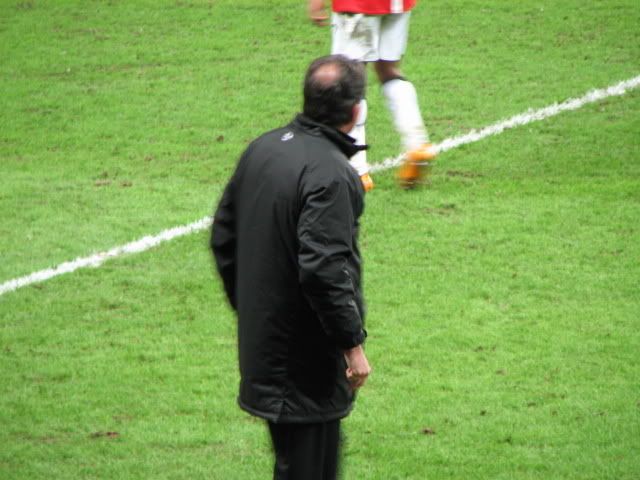 Carlos Q
Carlos Q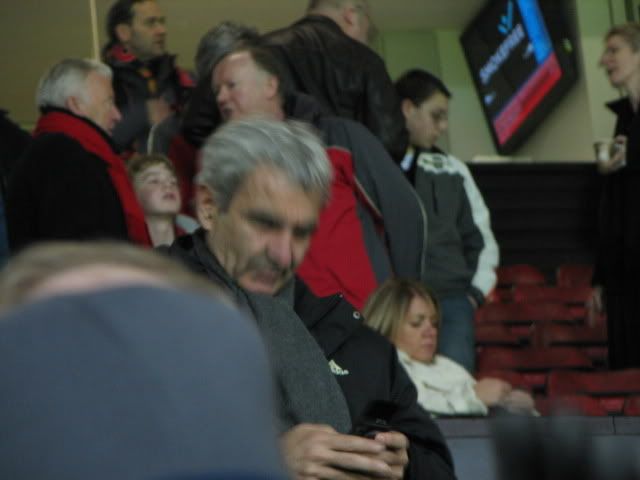 Domenech
Domenech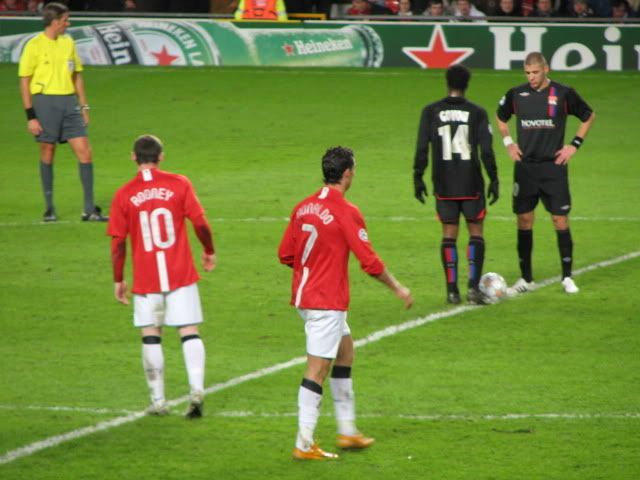 Wonder Twins
Wonder Twins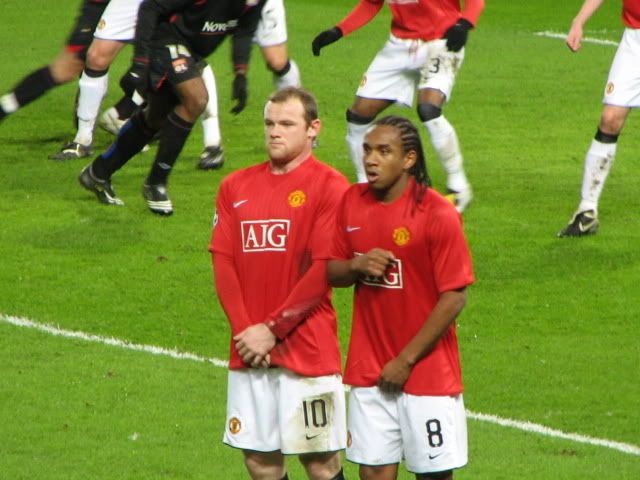 Champions of England
Champions of England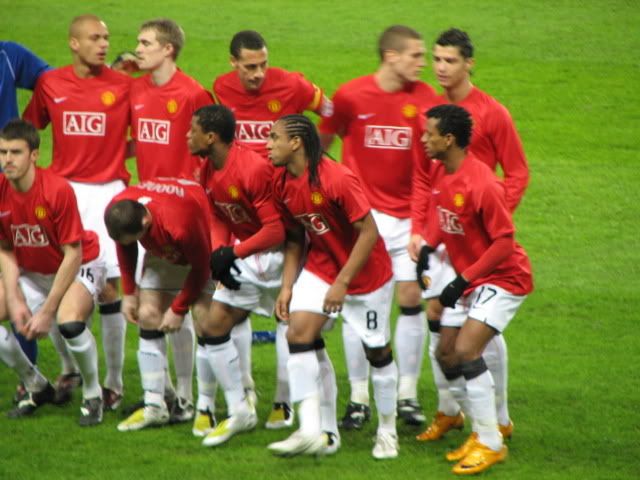 Take de title
Take de title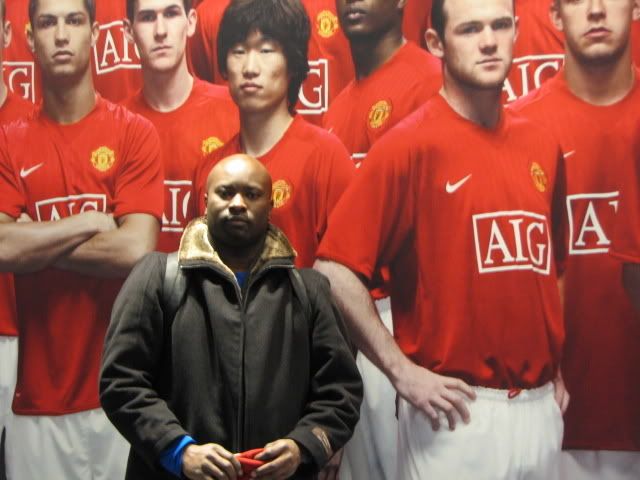 Me in the megastore
Me in the megastore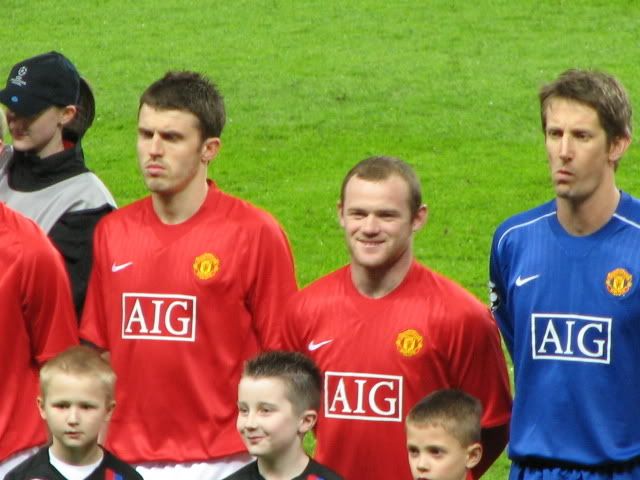 Rooney having a Laff
Rooney having a Laff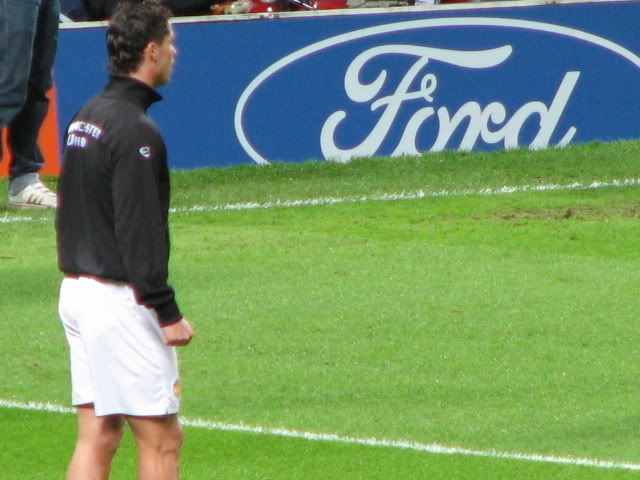 Ronaldo
Ronaldo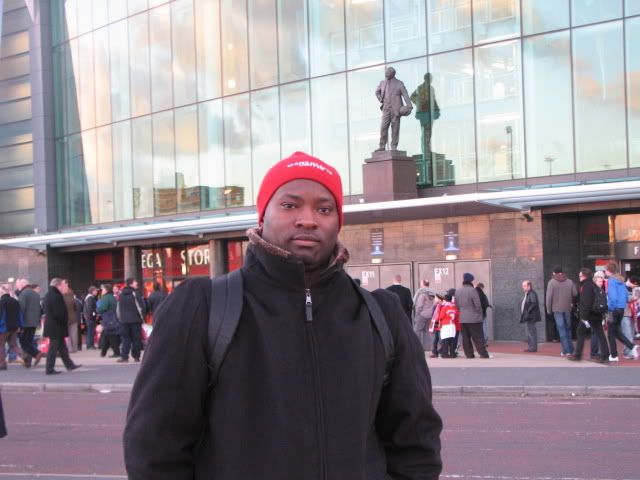 Ready for the match
Ready for the match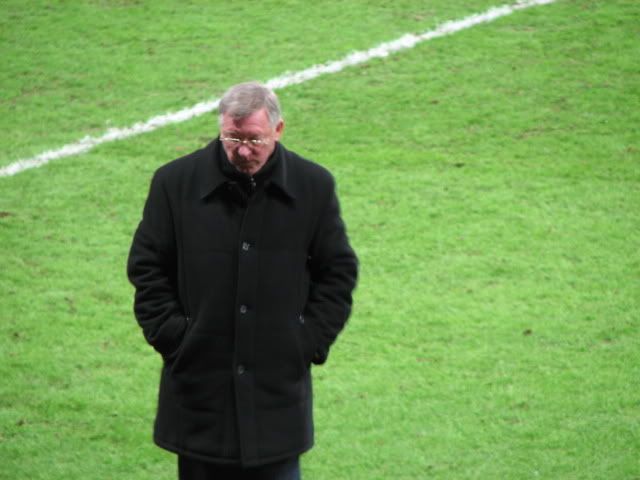 Fergie is the BOSS
Fergie is the BOSS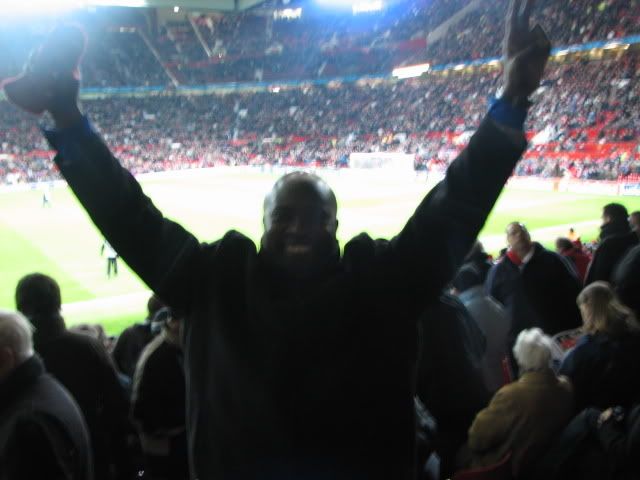 Do I look Happy
Do I look Happy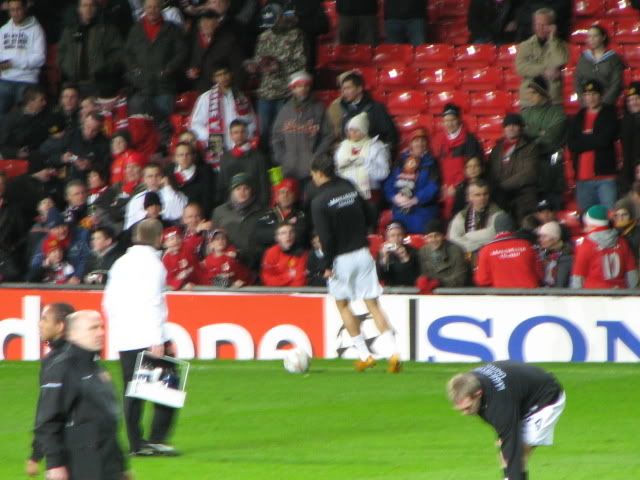 Ccris Ronaldo showing off
Ccris Ronaldo showing off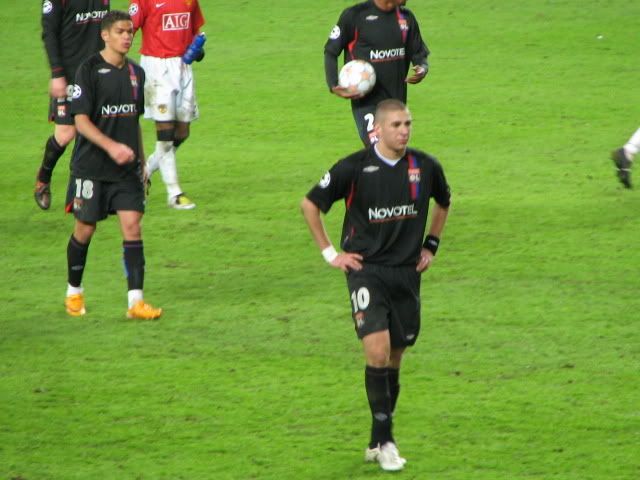 Benzema should stay in Manchester
Benzema should stay in Manchester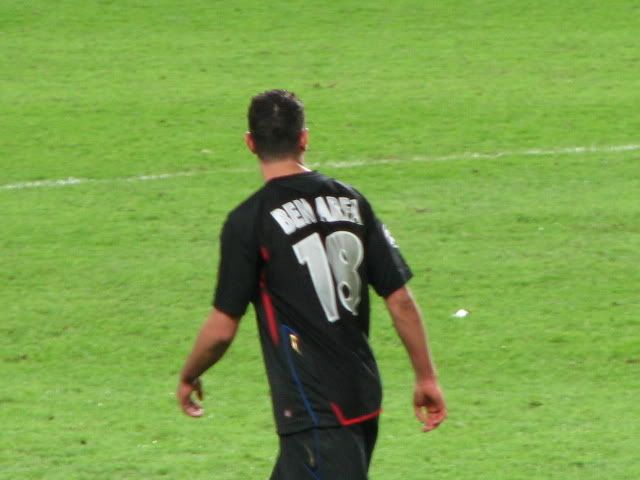 Ben Arfa
Ben Arfa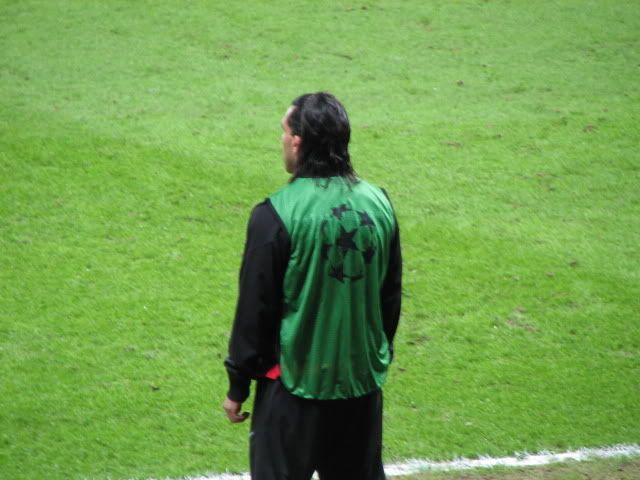 Tevez
Tevez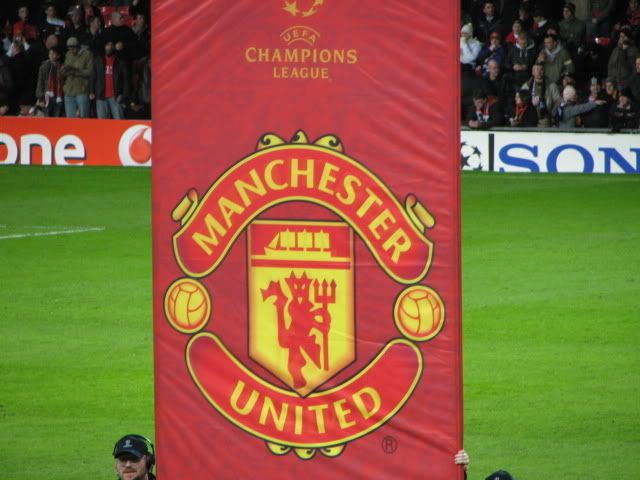
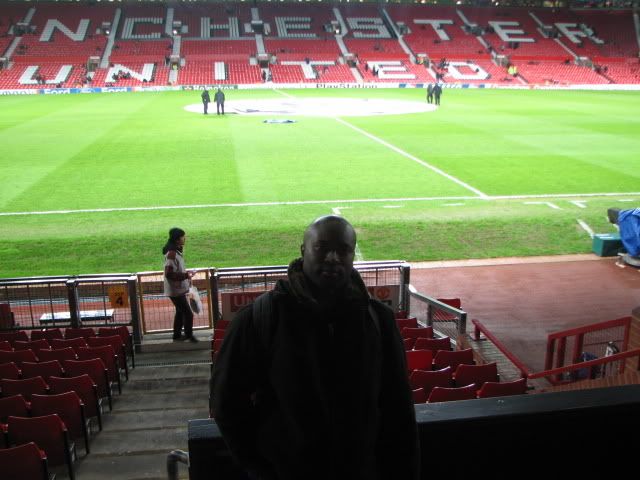 Trip of a lifetime
Trip of a lifetime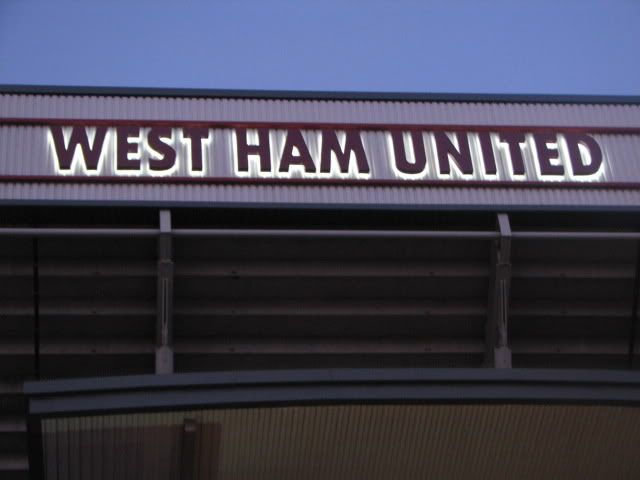 Upton Park
Upton Park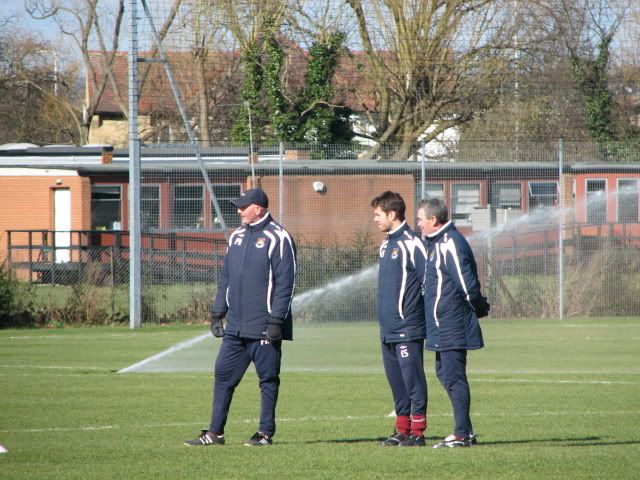 Prof Tony Carr Paul H and Eamonn the scientist
Prof Tony Carr Paul H and Eamonn the scientist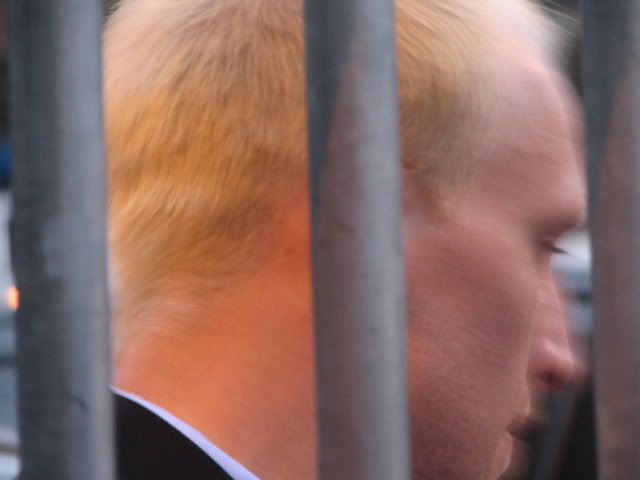 Deano
Deano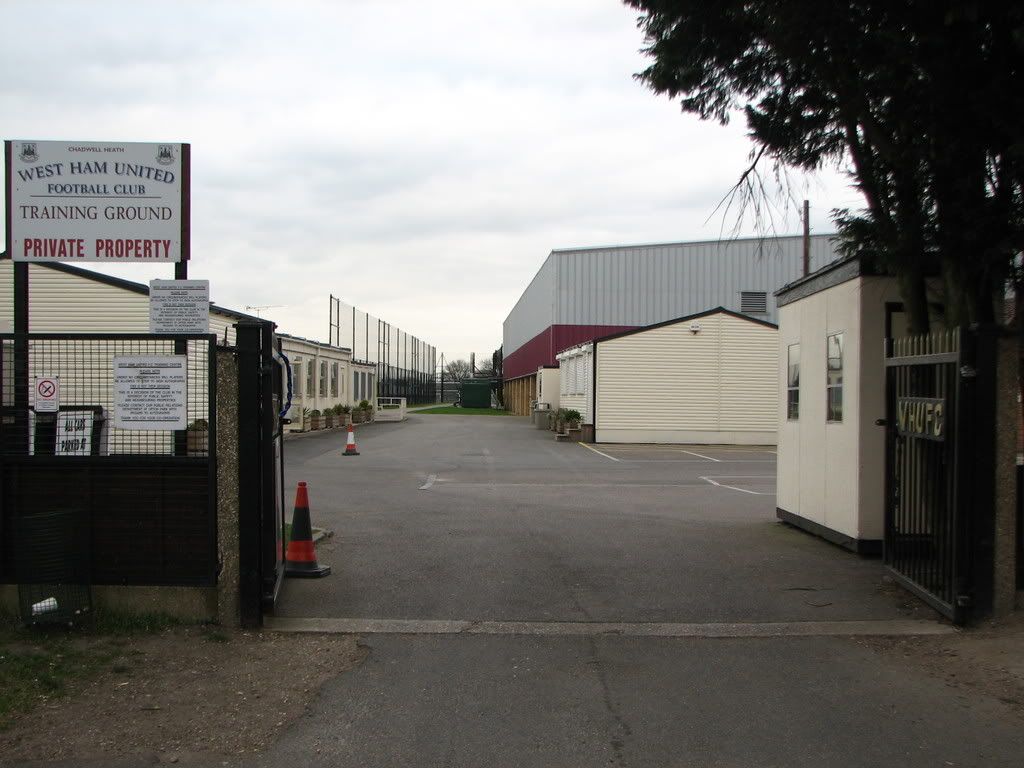
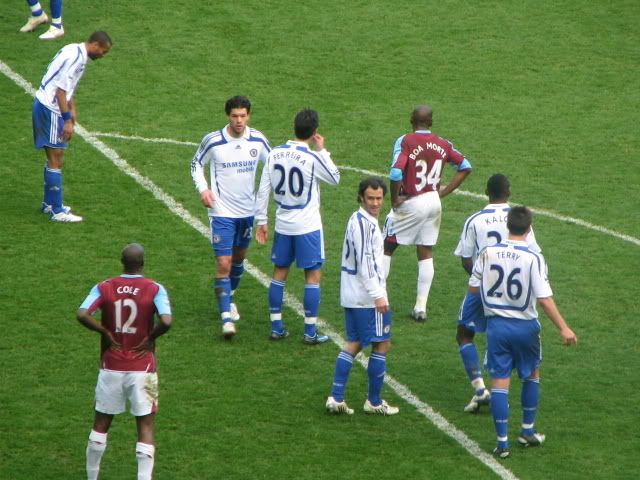 Carlton Cole
Carlton Cole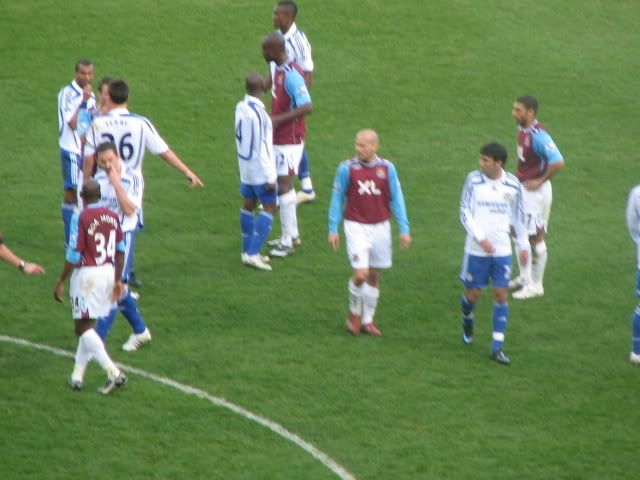 West Ham vs Chelski
West Ham vs Chelski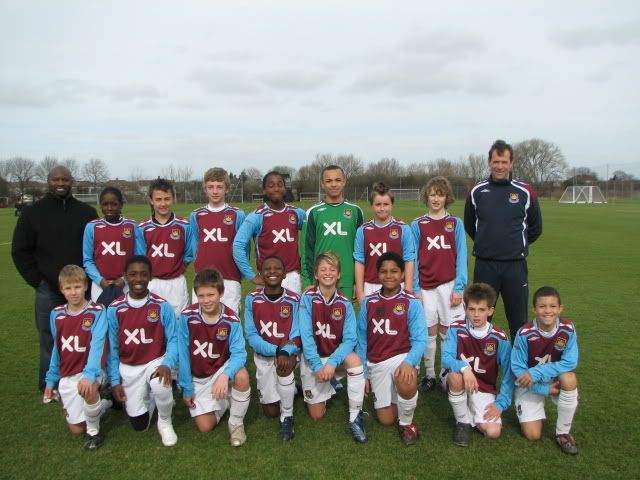 West Ham U12 team is special
West Ham U12 team is special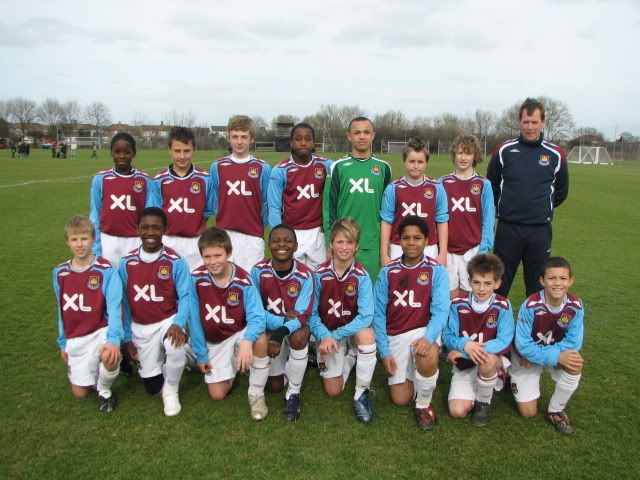 I love this team
I love this team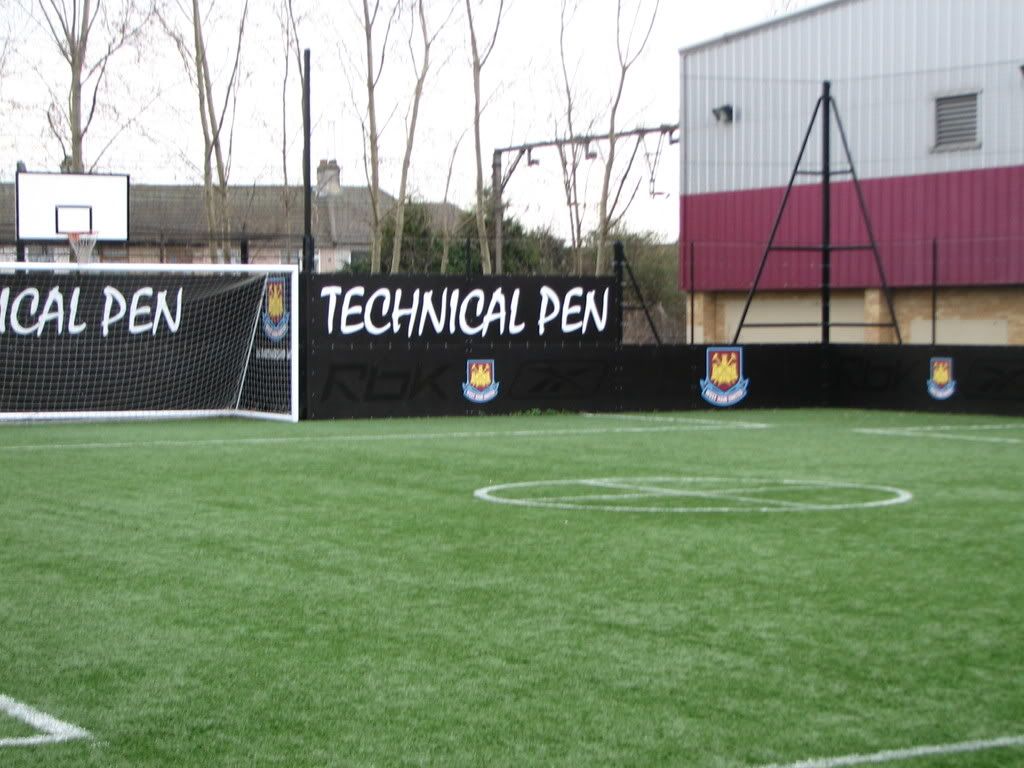 Technical Skills Pen
Technical Skills Pen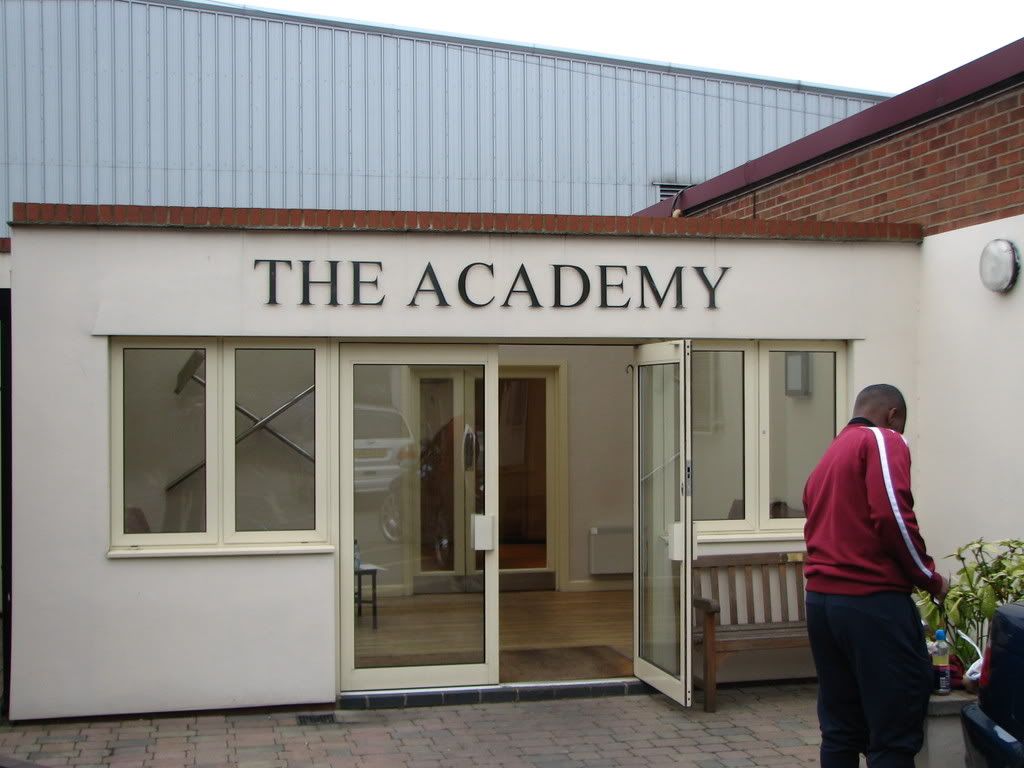 The Academy at Chadwell Heath
The Academy at Chadwell Heath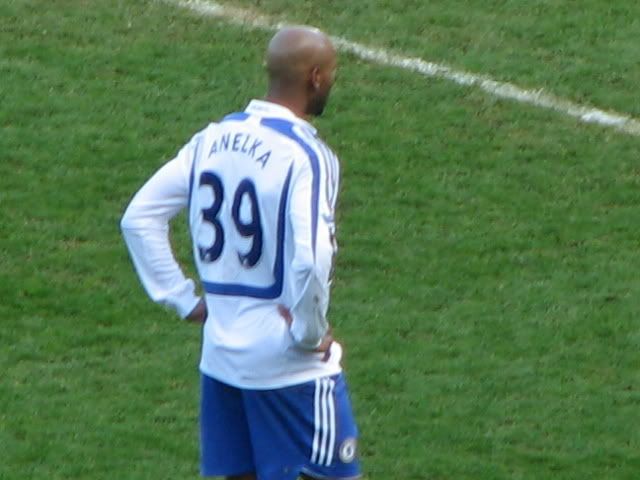 Anelka
Anelka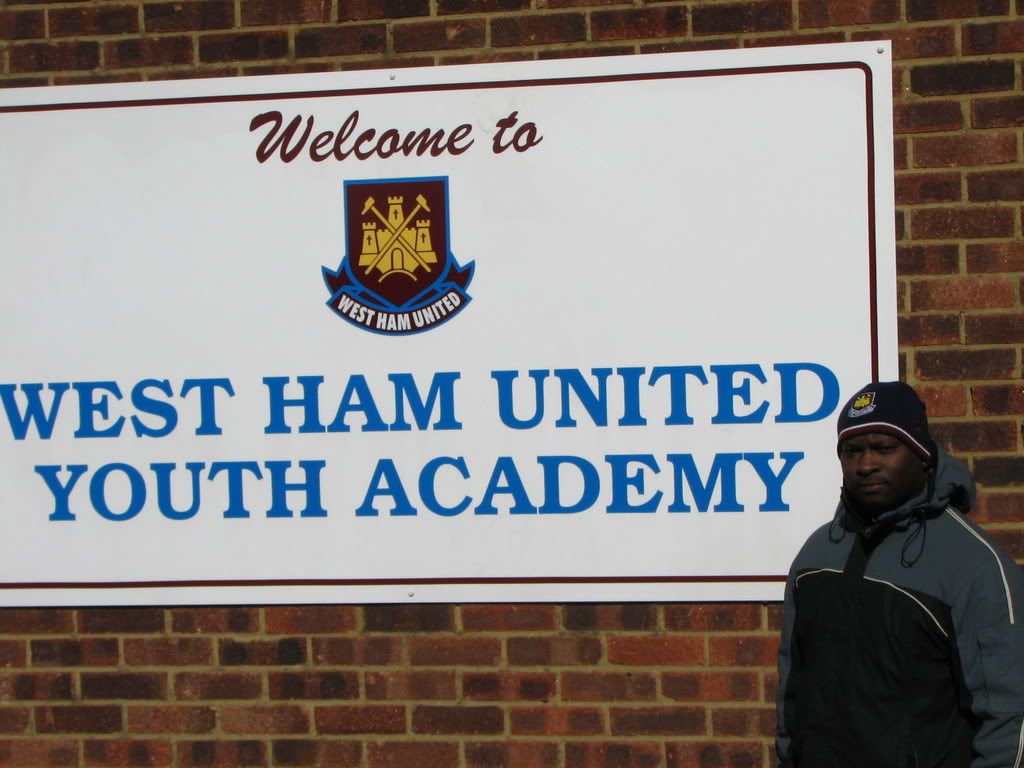 Me outside the Academy
Me outside the Academy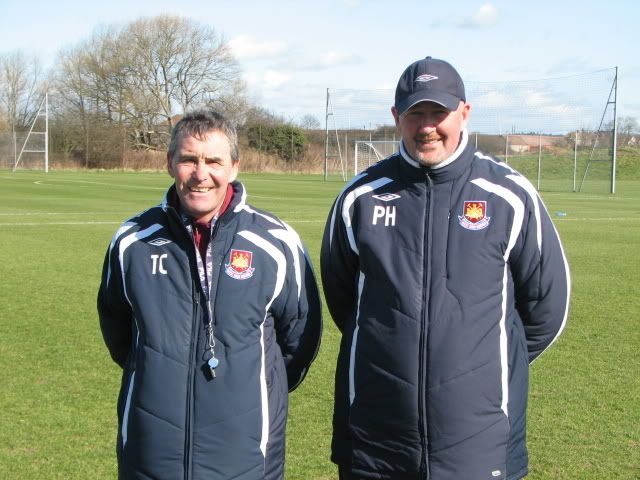 Prof Tony Carr is a BOSS
Prof Tony Carr is a BOSS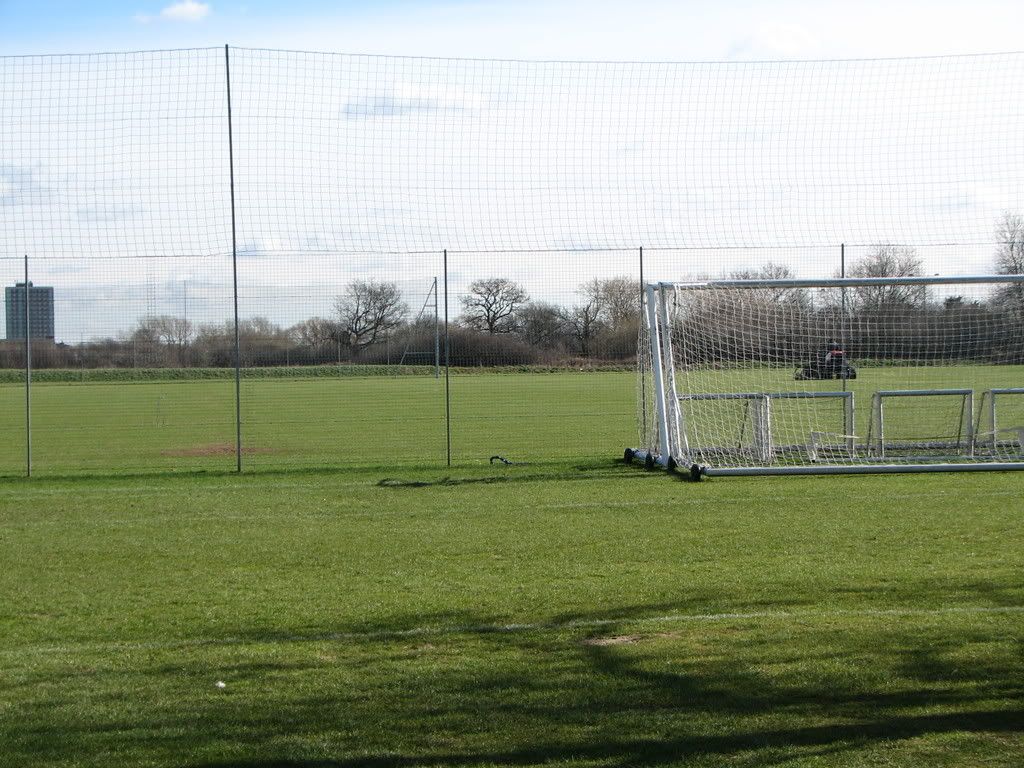 Little Heath
Little Heath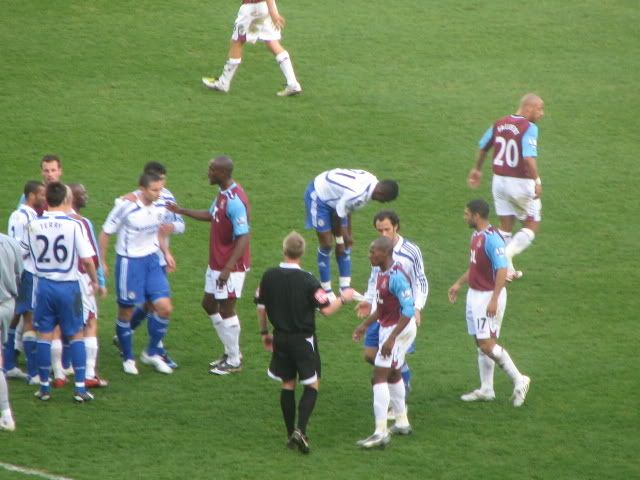 Lampard gets a red
Lampard gets a red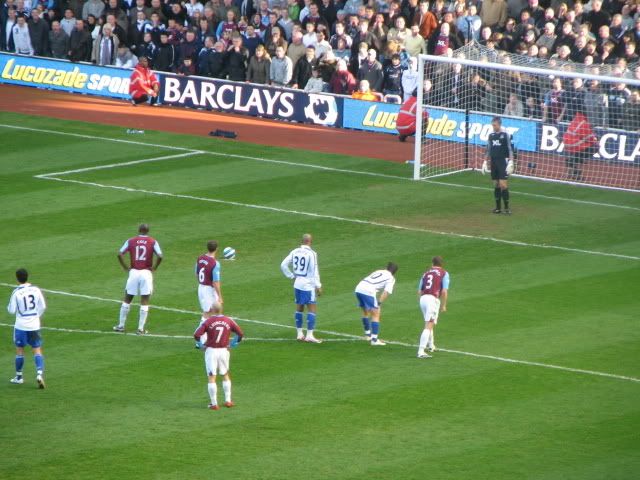 Lamps takes a penal
Lamps takes a penal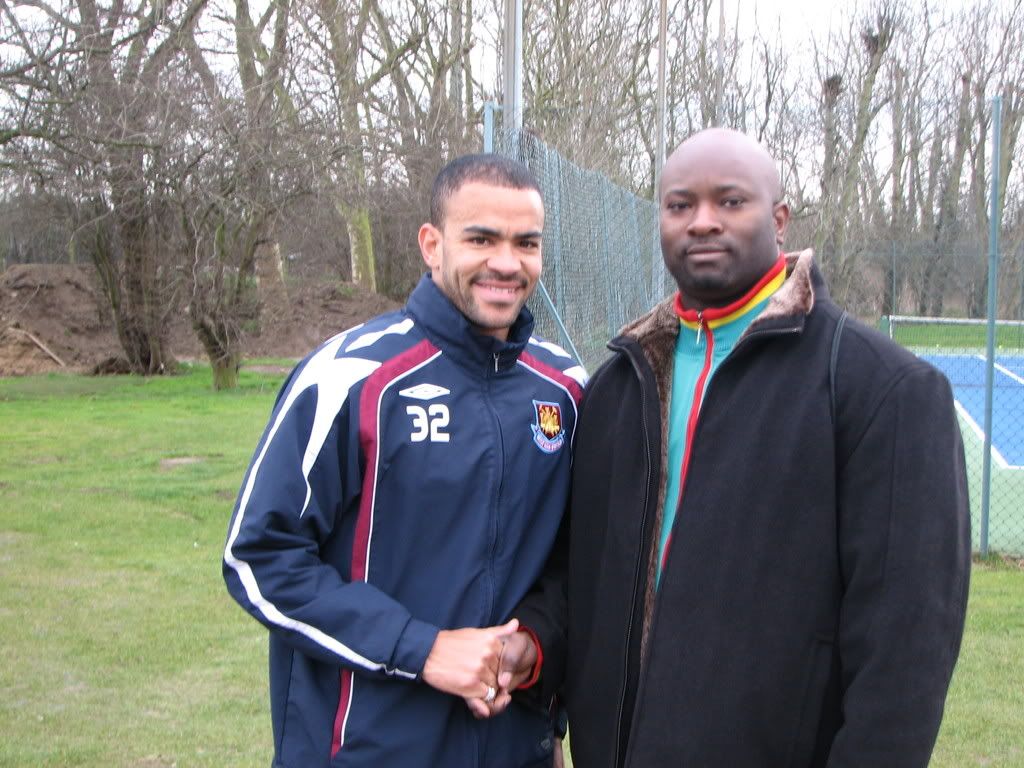 Dyer and I
Dyer and I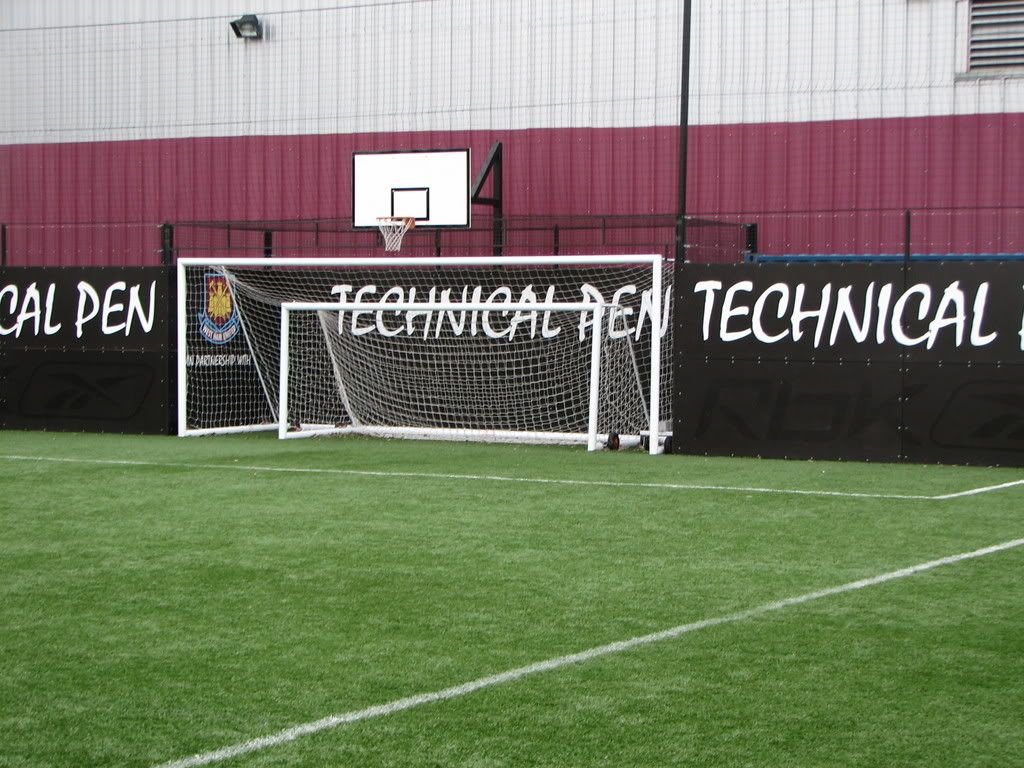 Tech pen
Tech pen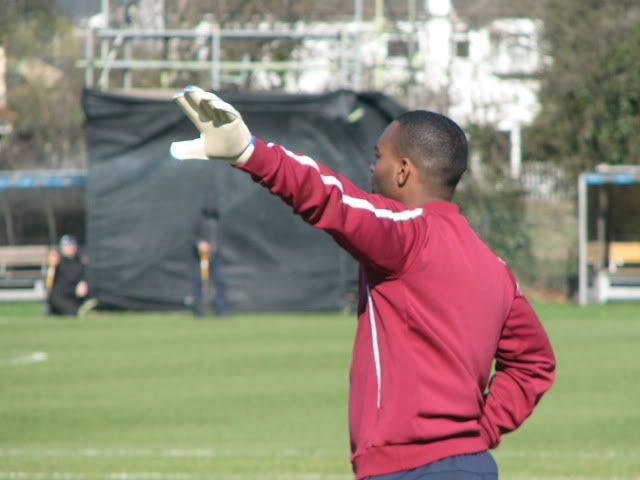 Jerome John Goalkeeping coach
Jerome John Goalkeeping coach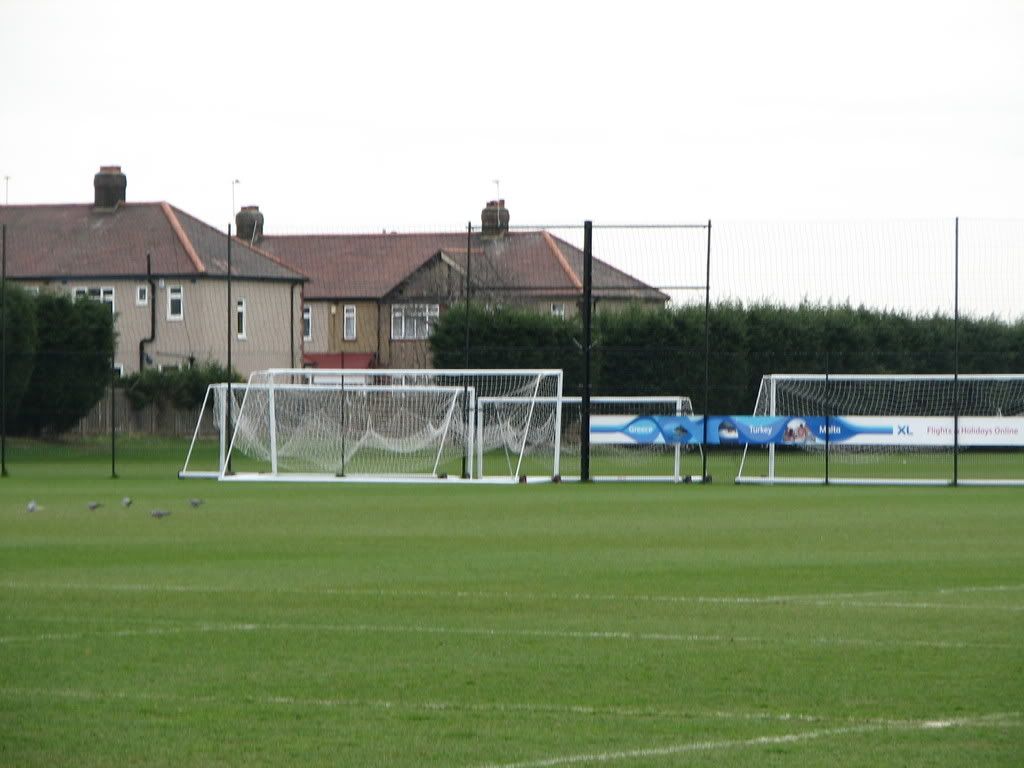 First team field
First team field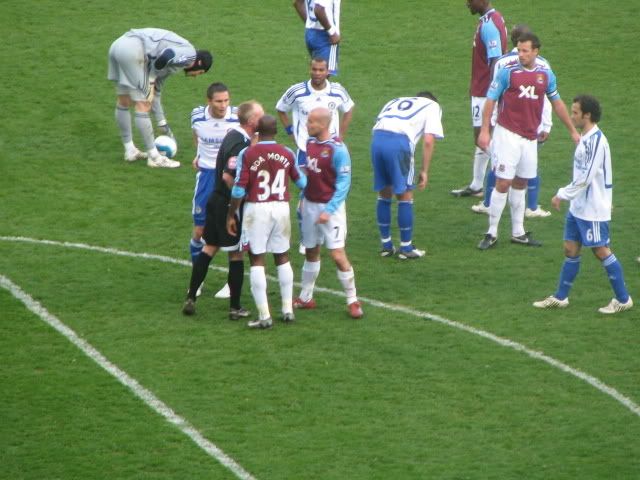 fat frank is off the field
fat frank is off the field Essien should not be a sub
Essien should not be a sub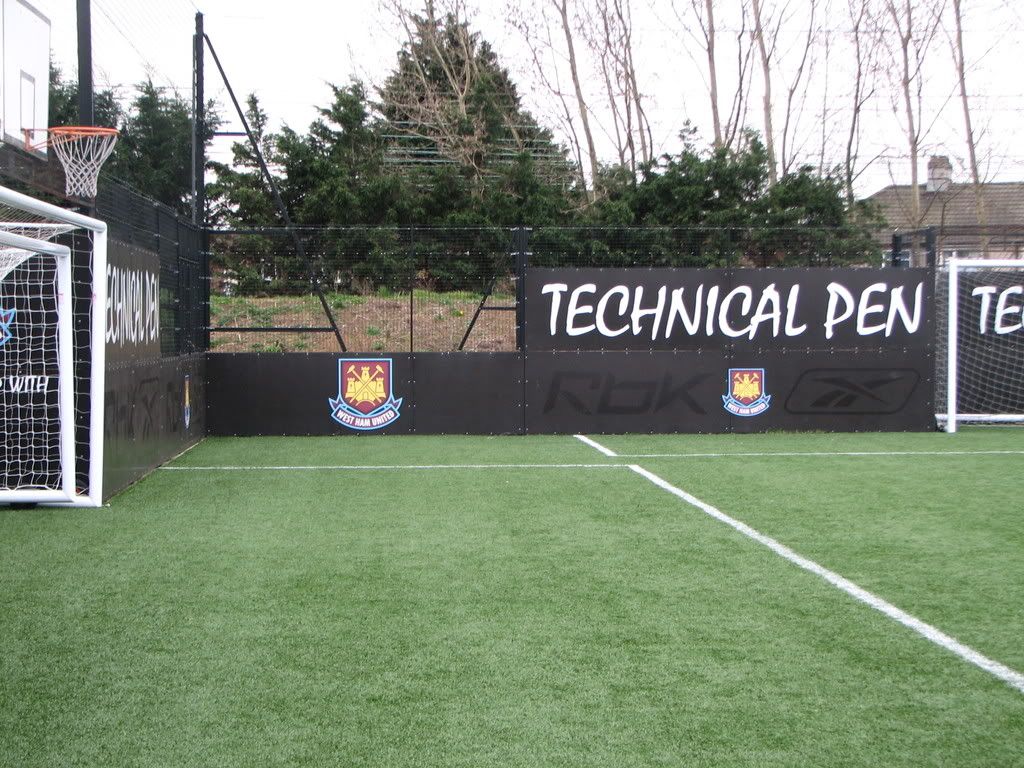
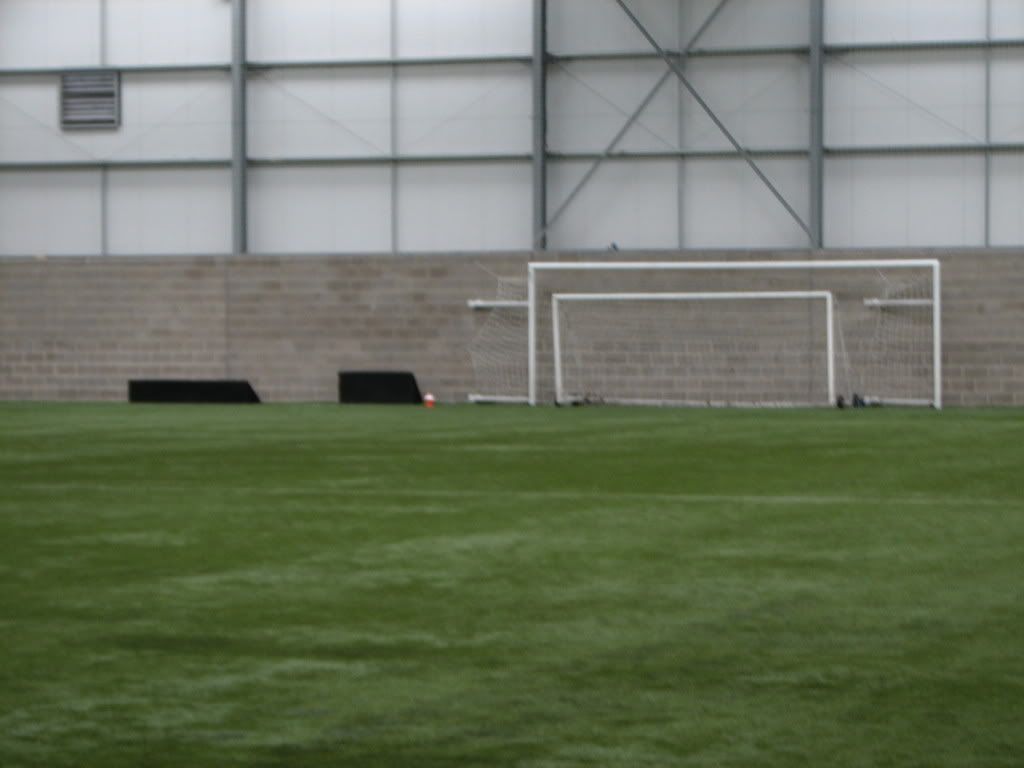 Indoor training facility for de youths
Indoor training facility for de youths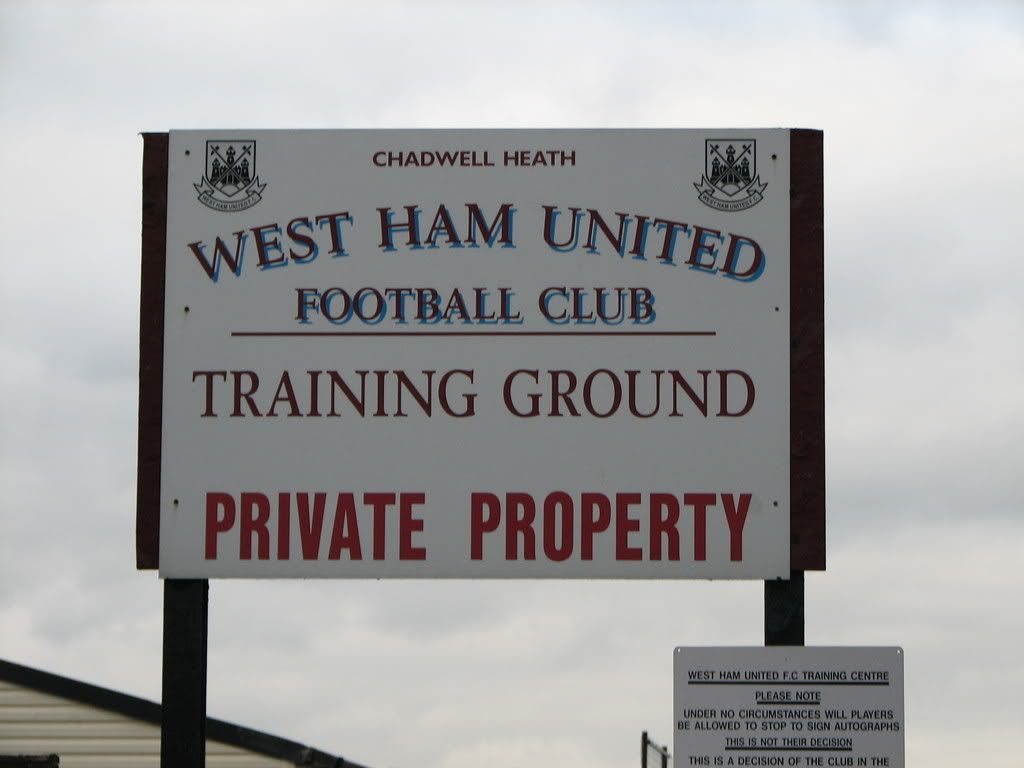 Main Ground in Chadwell heath
Main Ground in Chadwell heath WOW!!! and the cream is a young black forward, Robert.
WOW!!! and the cream is a young black forward, Robert.